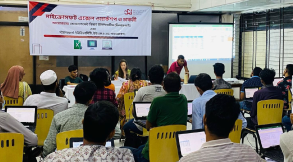How do government programs that distort prices in agricultural markets affect producers and consumers along the income distribution? We study the distributional effects of three such programs in Indian agricultural markets: fertilizer subsidies, procurement of crops at minimum support prices (MSP), and sale of subsidized grains to households. These interventions directly impact hundreds of millions of people and cost about 1.2% of India’s GDP. To examine their effects, we estimate a structural model of supply and demand with heterogeneous risk-averse producers, who choose a portfolio of crops and crop-specific inputs, and heterogeneous households who make consumption decisions. Using the estimated structural parameters, we solve for counterfactual equilibria in which these interventions are phased out. On the demand-side, we find these programs to be progressive. In their absence, consumption and expenditures of lower-income households would be affected more adversely. On the supply-side, we find these programs to be (weakly) regressive. Higher fertilizer prices, in the absence of subsidies, would be compensated by higher output prices so impact on farmer welfare would be minimal. Under no government-procurement at MSP, richer farmers would experience a greater welfare loss, while some of the poorest farmers would gain – a result driven partly by the inequitable implementation of the procurement program.
Working Paper
• Research Theme 3: Agricultural Productivity and Sectoral Gaps,
Research Theme 5: The Role of the Public Sector,
Cross-Cutting Issue 3: Inequality and Inclusion
Redistribution Through Prices in Indian Agricultural Markets

Related content



































































































